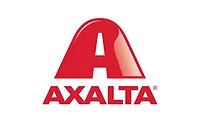AkzoNobel Shows Profitability Improvement for First Quarter Despite COVID-19 Impacts
AMSTERDAM — Akzo Nobel N.V. has published results for the first quarter of 2020, with adjusted operating income up 31% to €214 million, compared to €163 million in the first quarter of 2019, despite impacts from COVID-19. Return on sales, excluding unallocated costs, increased 12.4%, compared to 9.1% in 2019, with price/mix up 2%. Operating income was up 65% at €187 million, compared to €113 million in 2019, and OPI margin improved to 9.1%. Transformation and other savings delivered €44 million in lower costs.
Revenue was 6% lower and 5% lower in constant currencies, with positive price/mix of 2% more than offset by 7% lower volumes, mainly due to the impact of COVID-19. Operating income oft €187 million includes €27 million negative impact from identified items, related to transformation costs; OPI margin improved to 9.1%. Net income from total operations was €114 million, compared to €65 million in 2019, and adjusted EPS from continuing operations was up 54% at €0.71.
AkzoNobel CEO, Thierry Vanlancker, commented, “Just like many around the world, we’re dealing with challenges from COVID-19. Our top priority at AkzoNobel is the health and safety of our colleagues. As a business, we’re also taking all reasonable steps to continue serving our customers and make sure AkzoNobel remains in a strong position to weather the storm.
“Our results for the first quarter demonstrate our transformation was fully on track, even though COVID-19 already had a significant impact, especially in China and later in the quarter other regions of the world. Our performance improvement accelerated, resulting in business return on sales 330 basis points higher at 12.4%. These results were possible due to the passion and commitment of everyone at AkzoNobel who have been working – and winning – together during unprecedented circumstances.
“While things are gradually returning to normal in China, COVID-19 headwinds are increasing for most of the world and will have a significant impact during Q2. Although we’ve been forced to pause key parts of our transformation and suspend our 2020 financial ambition, we’re eager to quickly resume our positive momentum once markets normalize.”
Recent Highlights
AkzoNobel launched a new wave of exterior water-based paint that offers superior metal protection. Hammerite Ultima can be applied directly onto any metal surface – as well as rust – without the need for a primer. Suitable for anything from gates and fences to railings and garden furniture, the new product is now available in Germany, Spain and France and is scheduled for launch onto other markets in due course.
The BMW Group has chosen AkzoNobel to be a trusted supplier of vehicle refinish products and services to a large part of its distribution network around the world. The deal came into effect on Feb. 1, 2020. Covering 44 locations, the agreement means that the company’s premium Sikkens and Lesonal brands are now approved for paint repairs of BMW and Mini passenger cars at authorized dealers, repairers, importers and national BMW Group branches.
One of AkzoNobel’s automotive training centers has been given a new lease of life. Now restored and expanded, the new facility in Pruszków, Poland, has doubled in size and is the company’s most advanced automotive training center in Europe. Featuring state-of-the-art equipment, it will serve as a hub of learning and collaboration, hosting more than 1,000 people a year.
The first in a series of challenging sustainability ambitions has been announced by AkzoNobel, designed to accelerate the newly focused paints and coatings company towards zero waste and cut carbon emissions in half by 2030. These two key ambitions – and their related targets – are the first in a wave of measures and focus on the “Planet” element of the company’s new “People. Planet. Paint.” approach to sustainability. The associated targets for 2030 include a 30% reduction in energy use, 100% renewable electricity, 100% water reuse at the company’s most water intensive sites and zero non-reusable waste.
Outlook
AkzoNobel has paused key parts of the company’s transformation and suspended its 2020 financial ambition in response to the significant market disruption resulting from the COVID-19 pandemic. Headwinds related to COVID-19 are increasing for most parts of the world and will have a significant impact during the second quarter. Demand trends differ per region and segment in an uncertain macro-economic environment. Raw material costs are expected to have a moderately favorable impact for the first half of 2020. Continued margin management and cost-saving programs are in place to address the current challenges. Once markets normalize, AkzoNobel intends to resume its positive momentum and drive performance in line with industry frontrunners.
Looking for a reprint of this article?
From high-res PDFs to custom plaques, order your copy today!




